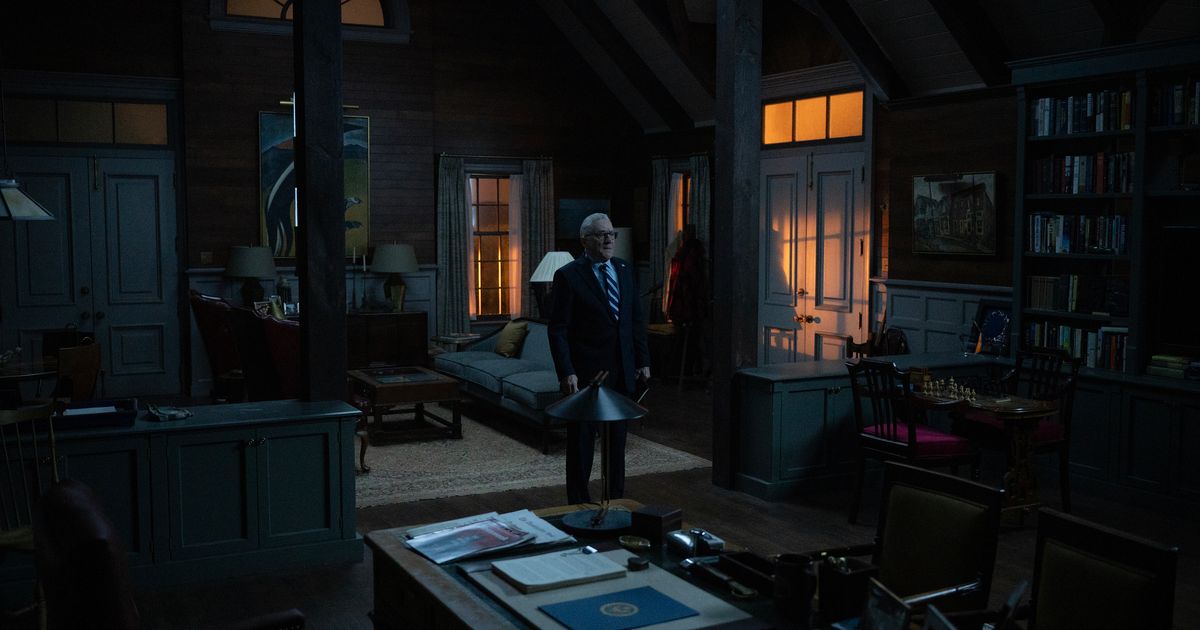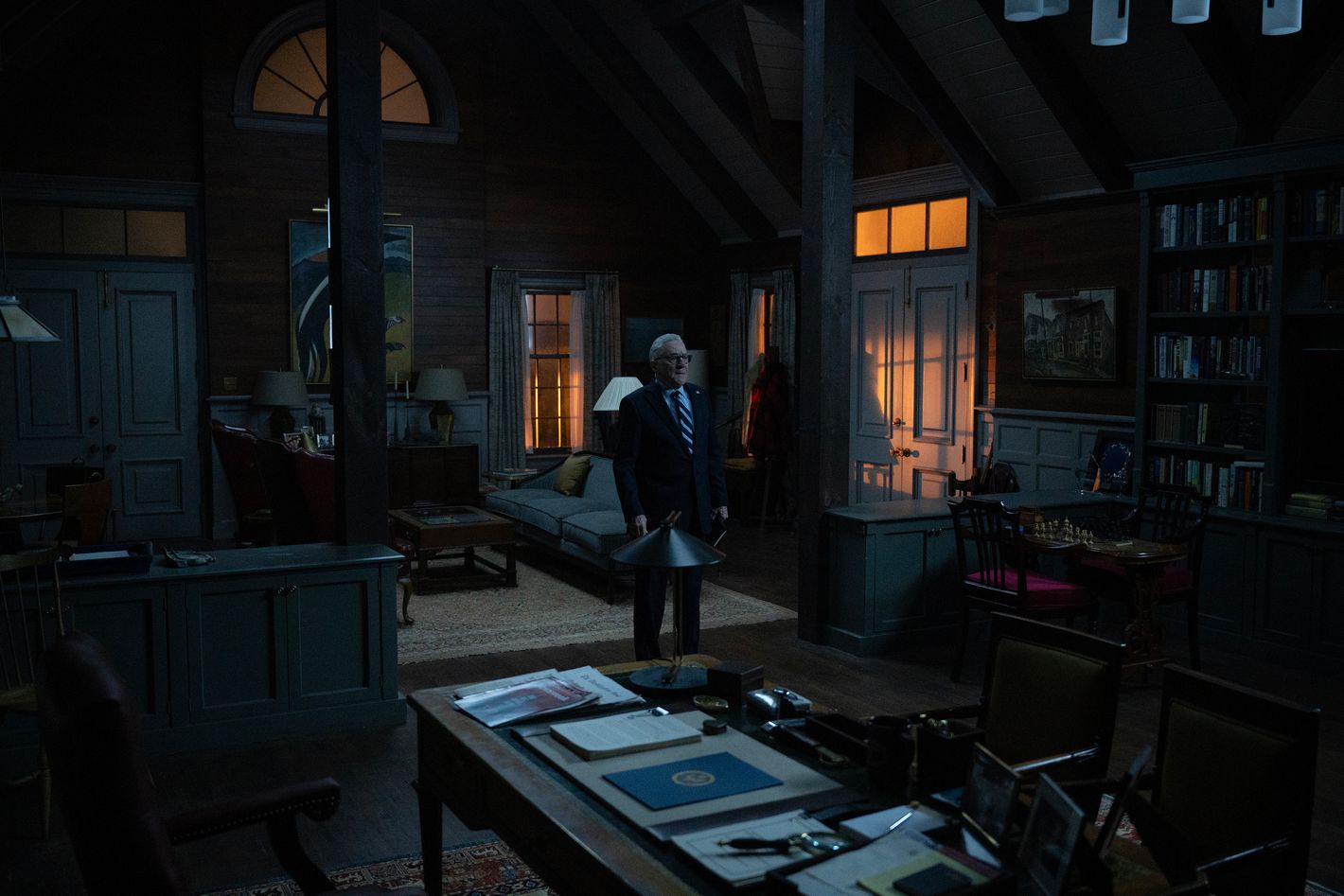Zero Day Finale Recap: Up in Flames
The series fumbles at the finish line by ditching its most intriguing plotlines in favor of a stupid conspiracy to save America’s fractured politics.


We’ve made it to the end of the line: The conclusion to the monthlong search for the perpetrators of a heinous attack that killed thousands of people is … really underwhelming. The revelation that Dreyer and Alex were part of the conspiracy in the last episode was one of the show’s most inspired turns, and it’s a shame that it fumbled this badly. Zero Day played with the idea of developing George’s character beyond the “Last Good President” symbolism by giving him an undercurrent of viciousness, but from the first second of episode six, it’s obvious he is going to be elevated to hero. That approach undoes the significance of the moments that came before. More disturbingly, it justifies his use of “enhanced interrogation tactics” as a necessary evil, a part of the journey toward righteousness.
While Alex knows that Kidder’s arrest and subsequent death are bad news — there is no way her father will accept this as the end of it all, given the suspicious circumstances surrounding Kidder’s death — Dreyer seems confident that George will cease to pull at the thread. Desperate, Alex barges into Dreyer’s office, where co-conspirators are gathered, and begs them to “come clean,” which is absurd. What is she expecting? For them to go out in front of the American people and be like, sike? “One minute of a system shock, that’s what you said,” she tells Dreyer. “A few months with the right power in the right hands and the country’s back on track by Christmas.” This is the first we learn of the goal of Zero Day, which was, incredibly, to unite both sides of the political aisle. Truly, what?
There are a number of reasons why this conclusion doesn’t work, and one of them is that it reduces every character to the least interesting version of themselves. When it was revealed that Alex was a conspirator, I thought the show might be entertaining the possibility that darkness passed down like genetics in the Mullen family tree — Alex might have been accusing her father of having a latent taste for fascism as a way to catapult herself into his own position. But no: Realizing that she lacks the power to put a stop to Dreyer’s machinations, she heads to her parents’ house to confess. But before she can make it, attack No. 2 strikes. It’s not as apocalyptic as Zero Day, but it is longer.
It’s dark long enough for George and Sheila to get trapped in their car with their Secret Service detail, who have to try and clear a path out of the angry mob that has formed outside the iron gates of their house. Already knowing how it would look if they did, George instructs them not to use tear gas, and ultimately, the crowd pushes past security and into the car itself, dragging out both Secret Service officers. George gets to the car door before protesters can get ahold of him or Sheila, and the moments while they wait for things to die down are probably the scariest of the series. When another car explodes down the driveway, the crowd disperses. Jeremy Lasch emerges from the flames like George’s knight in shining armor.
At this point, we know that Jeremy only ever makes an appearance when something needs to be explained, so this is what we learn: The CIA and President Mitchell knew from the start that high-level government officials were involved in Zero Day. They needed someone “out of the game” like George to head the commission and find out who. When, in the first episode, George met with Jeremy at Langley in the opaque, soundproof room, he gave George the scoop, but George was either too shaken or too messed up from the PTSD/age/Proteus symptoms to understand what he was being told. As Jeremy catches George up, CIA officials buy him some more time. Tuning into the 1140 frequency on an AM radio, they send out a message that George is dead.
Sheila meets Lily briefly at Valerie’s house as they wait for the power to come back on, and it’s awkward. George himself goes straight to Alex’s apartment, where she attempts to explain her train of thought in agreeing to join the conspiracy. She resorts, as she so often has, to the “this country has changed beyond your grasp” line — Dreyer and Kidder convinced her that the only way to unite the American people was to expose a vulnerability, scare everyone out of their minds, and then have the commission swoop in to save the day, showing people that the institutions they had long lost faith in could still rebuild. Their idea of what could mend the political body’s absence of reason was … unlimited power?! The plan got stuck when Mitchell gave George, rather than Dreyer, the commission. In explaining it, Alex realizes how stupid and bad the plan was to begin with. She begins to hyperventilate, ultimately resorting to “Dad, please.”
Dreyer is sure he’s gotten away with it all by the time George gets to him. When they meet, we are again subjected to an explanation of the perverse logic behind Zero Day. Dreyer refers to several examples of our own political landscape (“fever dreams of lies and conspiracy,” “the delusional who think an election is open to interpretation”) to illustrate his point about the irremediable fracture that ails the country, which only makes the idea of his having devised this conspiracy to save it more stupid. By abstracting the “enemy” so that it’s not a real person or ideology and instead locating the heart of America’s problems in intangible disunity, the show not only foregoes any possibility of saying something relevant about our horrendous situation but also bizarrely suggests that the only person fit to save it would be someone who knows when the time is right to allow a little torture. I couldn’t believe it that, villainous as Dreyer is — and perfectly set up to be a bona fide villain, tall and lanky and silver — the show never seems to go for the better and more plausible explanation: that he wanted control of the country because he wanted to declare himself Emperor of America. That, to me, seems much closer to our reality (and much scarier) than whatever George Mullen and his lost ability to “unite both sides of the aisle” are supposed to represent.
Anyway, Dreyer is still not worried about going to jail because he knows that if George wants to tell the truth about his involvement, that would also mean arresting Alex. Dreyer suggests that they just leave things as they are: Pin the whole thing on Lyndon and Kidder, let George be the hero, and agree that Dreyer and his co-conspirators will all step down from their posts as soon as their terms are over. It’s not just Dreyer who thinks this is the best way forward: Sheila and President Mitchell agree.
For Sheila, it’s obviously personal: She can’t bear the thought of losing another child. Mitchell comes by the house to make her argument. She’d always known that George’s decision not to run for reelection was not only about Nick’s death or his affair with Valerie but, more specifically, about Lily and the kind of scrutiny he would invite into her life. In that situation, Mitchell observes that George knew that “the truth is always the truth, but it’s not always the most important thing.” She suggests the country couldn’t possibly take another blow, that everyone’s worst fears about the government should be confirmed at this very moment, on the eve of her reelection bid, which would cause irreversible damage. George takes all of her points silently and gravely. It’s understood he is considering them as he resumes his regular routines: swimming, running, working on his memoir, noticing that there is a stray electronic device hidden in the bird feeder.
Alex also comes by, but she doesn’t talk to George; we only see her speaking, in tears, with Sheila. On the morning of the day George will announce the commission’s findings in a joint session, Valerie swings by Dreyer’s office to hand him the report. Dreyer is pleased and smug; when news that Alex has disappeared reaches him, he shrugs it off, saying she must not want to see her father lie for her. Dead giveaway: You can predict what’s about to happen.
George will, obviously, go rogue. It’s easy to tell even a little earlier when he goes to the commission headquarters one last time. After congratulating the team on their efforts, he briefly sees Carl, who turned out okay. Carl mentions the “additional angles” uncovered by the investigation, but George asserts they’re going with what’s on the report. For the better part of the joint-session hearing, he keeps to the plan, reading from the teleprompter with a steady voice: The malware used was developed by the National Security Agency and deployed by a group of terrorists led by the likes of Kidder and Lyndon. His hearing becomes muffled, and his blurred sight returns to a vision he’d had earlier in his study: his son’s face, playing with their dog. On the teleprompter, the lyrics to “Who Killed Bambi?” replace the speech. George recomposes himself and begins, “Those are the facts, but not the truth.” Sheila and Mitchell, who are watching from afar, let out sighs.
George reads from a letter Alex left him, in which she writes, “The way forward is to confront hard truths, not hide from them. Which is why I will not hide; I will turn myself in and face justice.” As the floor cries, “Traitor!” George names Richard Dreyer as the head of the conspiracy. The addition of Alex’s letter is another reductive piece of the final puzzle. By having Alex turn herself in of her own accord, the show solves George’s dilemma at no cost: He won’t have to tell on her, but he can still tell the truth. George doesn’t have to compromise himself or his image. He gets away with telling the truth and being the hero; doing the difficult and the right thing. The fallout for him is even easier. Now he has put it in Mitchell’s hands to clean up the mess, and he shall retreat to his handsome Hudson estate, where he won’t finish the memoir because he burned the pages in the library fire, but where he will continue to watch over the river with a satisfaction as smug as Dreyer’s when he thought it had all gone his way.
But wait! What about Proteus? Indeed, what about it? Valerie takes the stray electronic device from the bird feeder to get tested, but the results are inconclusive. It could be Proteus, but it could also just be a random wire that fell in with the seed (?). George’s symptoms, it’s concluded, could be the result of being targeted by Proteus or, just as easily, of being stressed, old, and tired. Of all the frustrating outcomes in this show, this one is the most egregious. Proteus was, by far, the most intriguing story line — the combination of a cyberattack and the deployment of a top-secret, extremely powerful neurological weapon is the kind of thing that might send imaginative, sharp minds like Alan J. Pakula’s or Sydney Pollack’s spinning. Imagine what it would’ve been like in Steven Soderbergh’s hands. There’s so much you could do! What a shame that Zero Day lets it disintegrate like sand.








